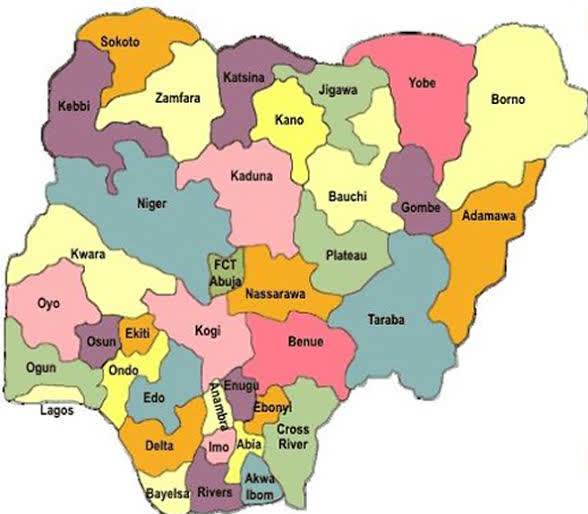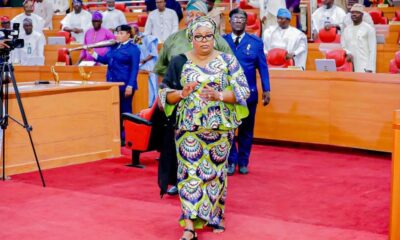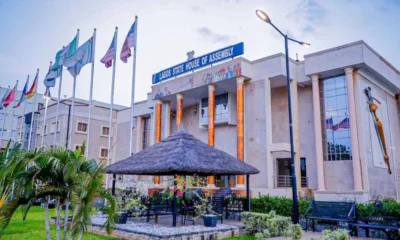Special Features
Kaduna, Lagos, 8 other most populated states in Nigeria

News360 Nigeria archives in this post, top 10 populated states in Nigeria in 2024.
Nigeria, Africa’s most populous country, is a land of diversity, hosting a wide array of ethnic groups, cultures, and landscapes.
Comprising 36 states and the Federal Capital Territory (FCT), the country exhibits significant variations in population distribution.
Some states are particularly notable for their large populations, driven by factors such as economic opportunities, cultural significance, and historical importance.
This article delves into the top 10 most populous states in Nigeria, providing insights into the dynamics that contribute to their population growth.
1. Lagos State
Lagos State is Nigeria’s most populous state and the country’s commercial powerhouse.
With an estimated population exceeding 20 million, Lagos is not only the smallest state by land area but also the most densely populated.
Lagos city, the state capital, stands as Nigeria’s largest city and a leading financial center in Africa.
The state’s rapid urbanization, driven by economic opportunities and industrial growth, has made it a melting pot of diverse communities and a key player in Nigeria’s economy.
2. Kano State
Kano State, located in the northwestern region, ranks second in population, with over 13 million residents.
Kano city, the state’s capital, is one of the oldest and most historically significant cities in West Africa, renowned for its role as a center of commerce and learning.
The state’s economy is anchored in agriculture, textiles, and leather industries, drawing people from across Nigeria and beyond.
3. Kaduna State
Kaduna State, also in the northwest, is the third most populous state, with approximately 9 million residents.
The state is known for its educational institutions, such as the prestigious Ahmadu Bello University in Zaria, and its diverse economy, which spans agriculture, manufacturing, and services.
Kaduna’s population reflects Nigeria’s ethnic and religious diversity, making it a microcosm of the nation.
4. Oyo State
Oyo State, situated in the southwestern region, ranks fourth in population with over 8 million people.
Ibadan, the state capital, is one of the largest cities in West Africa and was a key administrative center in the old Western Region.
Oyo’s rich history, educational institutions, and agricultural productivity contribute to its large population and cultural significance.
5. Rivers State
Rivers State, located in southern Nigeria, is the fifth most populous state, with around 7 million residents.
The state is the heart of Nigeria’s oil industry, hosting numerous multinational oil companies. Port Harcourt, the state capital, is a major industrial and commercial hub.
The state’s population growth is fueled by the economic opportunities provided by the oil and gas sector.
6. Katsina State
Katsina State, in the northwestern region, has a population of over 7 million, making it the sixth most populous state.
Predominantly Hausa-Fulani, Katsina is an agricultural hub, with farming as the primary occupation.
The state’s historical significance, including being the birthplace of former President Umaru Musa Yar’Adua, further bolsters its population growth.
7. Anambra State
Anambra State, located in southeastern Nigeria, is the seventh most populous state, with a population of around 6 million.
Anambra is one of the most developed states in Nigeria, with a vibrant economy based on commerce, industry, and agriculture. Onitsha, a major commercial city in the state, is known for its large market and bustling economic activities.
It’s high literacy rate and rich Igbo culture also contribute to its prominence.
8. Ogun State
Ogun State, in the southwestern region, is the eighth most populous state, with over 5 million residents.
The state’s proximity to Lagos has led to significant population growth, as many people reside in Ogun while working in Lagos.
Ogun is an industrial hub with a growing real estate sector and a rich cultural heritage, particularly in the state capital, Abeokuta.
9. Bauchi State
Bauchi State, located in northeastern Nigeria, ranks ninth in population with around 5 million residents.
The state is known for its agricultural activities, including farming and livestock rearing, and its diverse ethnic composition, which includes Hausa, Fulani, and other groups.
Bauchi’s natural attractions, such as the Yankari National Park, also add to its importance.
10. Benue State
Benue State, in the north-central region, is the tenth most populous state, with a population of over 4 million.
Known as the “Food Basket of the Nation,” Benue is a major agricultural producer, particularly of yams, cassava, and rice.
The state’s population is predominantly made up of the Tiv, Idoma, and Igede ethnic groups, and its fertile land makes it a key player in Nigeria’s food production.
































